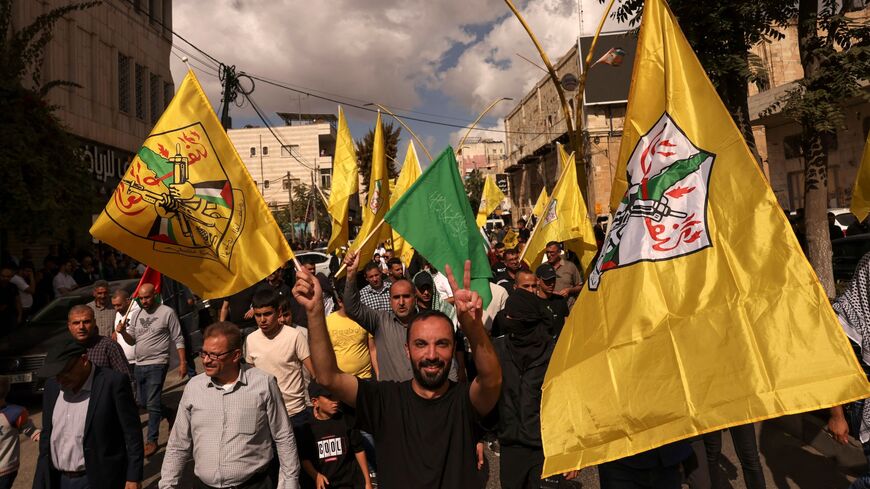You're reading analysis from the Palestine Briefing, where we break down Palestine's top political, security and business stories each week. To read the full newsletter, sign up here.
Despite high hopes for Palestinian rapprochement after the recent Moscow summit, where Fatah and Hamas, the two largest Palestinian factions, appeared to be reconciling some differences, the longtime rivalry has resurfaced in bitter public exchanges. Each side is blaming the other for the public spats and for the current catastrophe befalling the Palestinian people. A number of reconciliation efforts are again underway, but no one is seeing the light at the end of this particular tunnel.
After Palestinian President Mahmoud Abbas tapped his ally Mohammad Mustafa to be the next prime minister, four major Palestinian factions — Hamas, Islamic Jihad, Popular Front for the Liberation of Palestine and the Palestinian National Initiative known as Al-Mubadara, headed by Mustafa Barghouti — issued a strongly worded joint statement on March 15 opposing their lack of consultation on the appointment. “The Palestinian Authority insists on continuing the policy of exclusivity and ignoring all national efforts for Palestinian unity and unity in the face of aggression against our people," the statement read. "We express our rejection of the continuation of this approach, which has harmed our people and our national cause." The statement went on to emphasize that the highest priority should be to “confront the Israeli aggression and war of genocide and starvation being waged against the Palestinian people in the Gaza Strip.”
Mustafa Barghouti told Al-Monitor that the statement was not a direct attack against an individual but rather against the process. “It is not a personal issue [against incoming Prime Minister Mustafa] but for the need for such an appointment to be carried out after consultation so that it can work. We have no legislative council to allow people to react to the appointment," he said, referring to the fact that the Palestinian Legislative Council, which by law should vote on a new government, was dissolved in 2018.
Fatah, for its part, reacted angrily. In a statement published on March 16 on the official Palestinian news agency Wafa, the group said that “the leadership of Hamas is disconnected from reality and the Palestinian people. It has not yet sensed the extent of the catastrophe that our oppressed people are experiencing."



